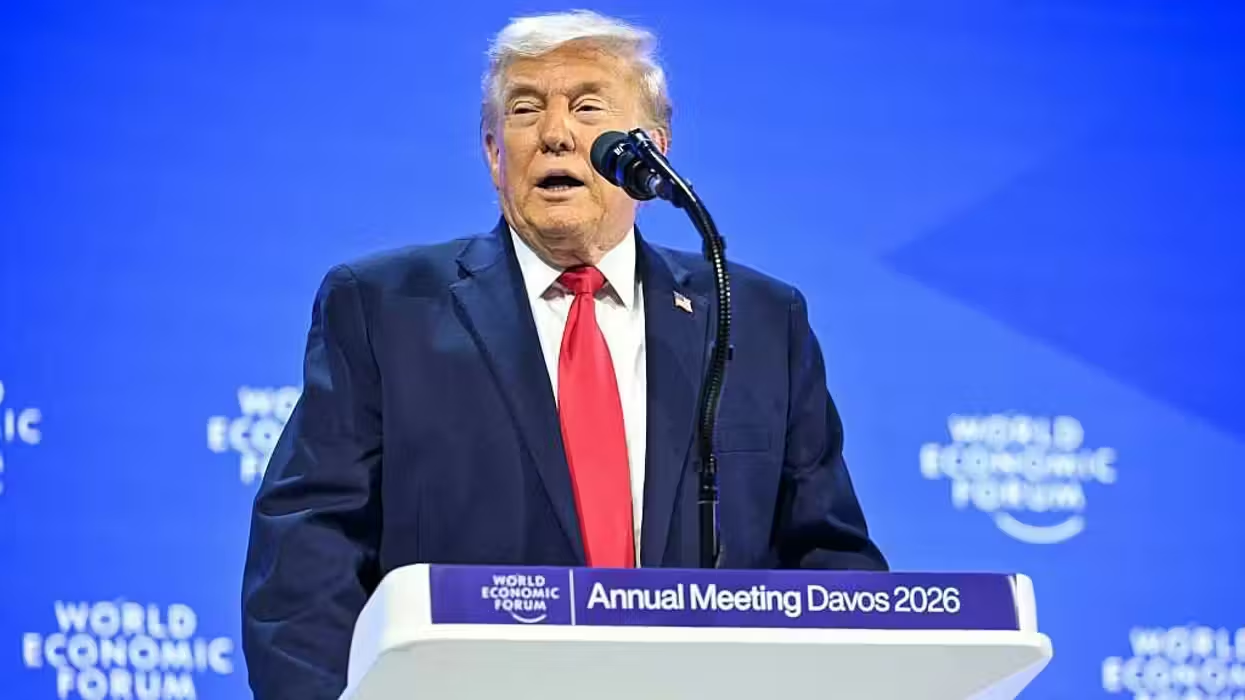
© 2026 Blaze Media LLC. All rights reserved.
 (Photo:AP)
(Photo:AP)
Mayor Bloomberg, Liege Lord of New York City and protector against all things unhealthy, is not one to embrace defeat in the wake of a major setback. You might have thought, hoped, or even prayed that when a judge axed his ban on large sodas, he would retreat, regroup, or even rethink his position. But His Grace has only just begun.
State Supreme Court Justice Milton Tingling, mere hours before Bloomberg’s law was to take effect, barred the city from executing the soda restriction and called it “arbitrary and capricious.” He argued that the Board of Health was violating the separation of powers by sidestepping the City Council, which should be in control of creating these kinds of regulations.
It’s heartening to know that there are judges who still have the fortitude to stifle an overreaching executive. Unfortunately, for some businesses, it was too late to reverse the damage caused by the specter of the approaching ban on large sodas. Many restaurants had rushed to adjust to the standard by buying new glasses, putting up signs, throwing away large soda bottles, and changing their menus. They wasted valuable time and money to comply with a law that never took effect.
This is what happens when commerce is at the mercy of a nanny state. Restaurants, bodegas, and other members of the food industry already have to juggle the hardships wrought by a global recession. It is completely understandable for these businesses now to demand financial compensation for the losses incurred while trying to adjust to Bloomberg’s unpopular proposal.
The mayor’s reaction to Justice Tingling’s ruling has been frighteningly absurd. As expected, he criticized the justice’s decision and vowed to appeal. For those business owners concerned about how the soda ban would have affected their bottom lines, Bloomberg said, “We’re talking about lives versus profits.”
It’s easy for a billionaire to so casually dismiss the notion that an overreaching government could negatively impact struggling enterprises. This is one of the many dangers of social engineering. Well-to-do bureaucrats make dubious, sweeping decisions in the name of public health while turning a blind eye to the consequences suffered by entrepreneurs.
Despite the backlash against Bloomberg’s policy and Justice Tingling’s scathing rebuke, the mayor doubled down on his efforts to save us from ourselves. He has turned his sights on tobacco, and proposed legislation that would require stores to hide their cigarettes. Many of the same stakeholders that just suffered through the uncertainty of the soda ban are again at the mercy of government.
“I can’t think of another business that is selling legal products that is being forced to hide them from public view,” said Jim Calvin, president of the New York Association of Convenience stores. “Businesses have a fundamental right to communicate with consumers.”
Unfortunately, Bloomberg’s attempt to expand the nanny state is only a microcosm of a much greater problem. This is not just about how much soda we can drink or whether cigarettes are hidden under the cash register. This is about how much freedom we enjoy. This is about the intrusion of government, and how much of it we are willing to stomach as citizens.
A soda ban is merely one of many rungs on the ladder to a collectivist society. The mayor justifies his power-grabs by making overtures about shared sacrifice and responsibility. “We all have an obligation to do what we can to help each other,” he said.
In America, you should not be held responsible for the poor decisions of others. There are always going to be people who drink too much soda and develop deadly illnesses. Just as there will always be people who eat too much McDonald’s, smoke too many cigarettes, drink too much alcohol, or gamble away their savings. Should government be responsible for protecting people from themselves? Absolutely not.
Bloomberg does not see his policy proposal as a “soda ban.” Rather, “The Board of Health limit on the serving size of sugary drinks does not limit anyone’s consumption. It just requires them to think about whether they really want more than 16 ounces.”
Government should not be in the business of making people second-guess their decisions about how much soda to drink. Neither should it be attempting to psychologically alter behavior by limiting the serving size of legal food products.
Despite the myriad flaws in Bloomberg’s policy, it is not hard to imagine why these proposals are made in the first place. America has an obesity problem, and taxpayers often pick up the tab when irresponsible people end up in the hospital. However, there are multiple ways to address the problem, and limiting freedom is rarely the best way to tackle these issues.
It is jarring to think that there are so many bureaucrats who spend their time figuring out how to take away our rights. Our elected representatives should be putting their minds to the underlying problems that cause obesity. How can we decrease the cost of health care and improve nutrition in public schools? How can we expand access to healthy food and nutritional education in impoverished neighborhoods? Of course, it is much easier to simply lay the blame for society’s ills at the feet of Big Soda.
This problem boils down to a simple choice: Do we want domain over the choices we make, or do we want government to bear this responsibility? The core values of American society should steer us in the direction of freedom. But the challenges of our times have led certain politicians on a path of social engineering. It is our job to make it perfectly clear that the problems we face are not great enough that we should sacrifice our rights in the name of public health.
Want to leave a tip?
We answer to you. Help keep our content free of advertisers and big tech censorship by leaving a tip today.
Want to join the conversation?
Already a subscriber?
more stories
Sign up for the Blaze newsletter
By signing up, you agree to our Privacy Policy and Terms of Use, and agree to receive content that may sometimes include advertisements. You may opt out at any time.
Related Content
© 2026 Blaze Media LLC. All rights reserved.
Get the stories that matter most delivered directly to your inbox.
By signing up, you agree to our Privacy Policy and Terms of Use, and agree to receive content that may sometimes include advertisements. You may opt out at any time.






